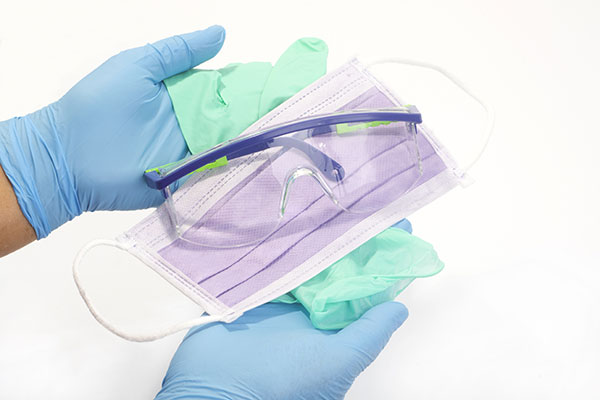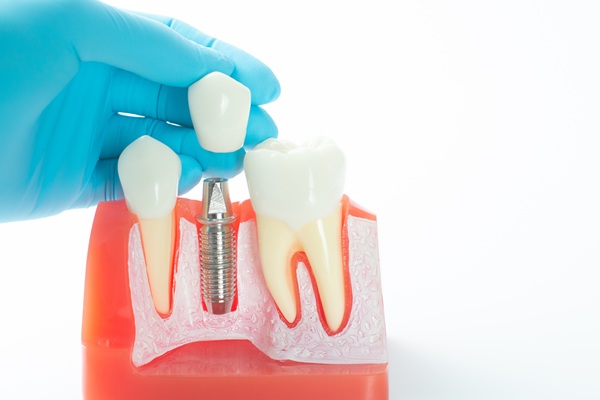Emergency Dental Visit Infection Control Procedures to Protect You During the COVID-19 Situation

Infection control has become the top priority all over the globe as the world battles the COVID-19 pandemic. The Centers for Disease Control has established new guidelines for healthcare providers and dentists to follow as they continue to provide services for patients with the most pressing needs.
The coronavirus is an airborne virus that is very contagious. It is primarily spread by infected airborne droplets making contact with a person's nose or mouth. It can also be spread by contamination since it survives on surfaces for up to 48 hours. The virus can be spread even when the carrier is pre-symptomatic or asymptomatic. The combination of all these things makes infection control a challenging feat.
Infection control measures implemented at dental practices
Here are some of the ways dentists are keeping their patients safe during the COVID-19 pandemic:
1. Emergency care only
One of the ways dentists can reduce their risk of being infected with COVID-19 is by limiting the number of patients coming to their practice. Most dental clinics are only treating patients with dental emergencies, like knocked-out teeth, infections, gum disease, broken teeth, loose teeth and excruciating toothaches.
Teledentistry services are now available for patients dealing with non-emergencies. Depending on the patient's problems, the dentist might be able to diagnose them and instruct them on how to address the problem. Limiting dental services to emergencies helps to protect both dentists and their patients.
2. Protective gear
Dentists also use a variety of protective equipment to protect themselves and their staff when performing treatments. Face masks and shields can help to prevent contaminated droplets from getting on the dental worker's mouth and nose. It does not provide full protection against inhaling harmful airborne microorganisms, but it does provide some level of protection.
Using protective gear is particularly important for dentists since some of the tools used during treatments, like ultrasonic scalers, create aerosols that can be contaminated with the coronavirus.
3. Separating patients
Dentists are now scheduling appointments further apart to reduce the number of people at the clinic at any given time. Current social distancing guidelines recommend spacing people at least six feet apart from each other, and this is factored in when scheduling appointments.
Dentists are also giving their patients the option of checking in and waiting for the dentist in their car. This can provide an additional level of protection for patients.
4. Focus on infection control
Dental clinics have shared areas, like waiting rooms, which need to be regularly disinfected to prevent cross-contamination. Many dentists are cleaning these areas after every patient to protect themselves and their patients.
Sanitizing aids, like hand sanitizers, are available in such common areas so patients can sanitize their hands as needed. Keeping the hands clean remains one of the most effective ways to prevent infection.
Get dental care
Our Oakland office remains open to people dealing with a dental emergency. Call us to find out of you need to come to the clinic.
Request an appointment here: https://dentalimplantsoakland.com or call Oakland Dental Implant Center at (510) 257-2284 for an appointment in our Oakland office.
Check out what others are saying about our services on Yelp: Read our Yelp reviews.
Recent Posts
It is essential to visit a family dentist every six months to maintain proper oral health. While it is possible to keep the teeth and gums suitably clean with appropriate brushing and flossing techniques, excellent home care is never a substitute for professional cleanings and preventative care. However, there are more benefits to routine dental…
Learning about the many benefits of dental implants is something everyone who is missing teeth needs to do before making a final tooth-replacement choice. The fact that there have been many improvements in the dental niche over recent years means that dental patients have more choices than ever before. Ready to learn more about this…
Cold sores are a common viral infection that can cause discomfort, pain, and self-consciousness. Fortunately, cold sore laser treatment is a highly effective solution for managing these viral outbreaks, offering fast relief and promoting quicker healing. This approach targets the affected area directly, reducing the intensity of symptoms and preventing future flare-ups.Cold sores, also known…
You may have recently had a dental checkup and been told that you have gum disease. While no one likes to find out they have a gum infection, there are various treatment options available, depending on the severity of your condition. Laser periodontal treatment, for example, is a minimally invasive alternative to conventional treatments.Periodontal disease,…


